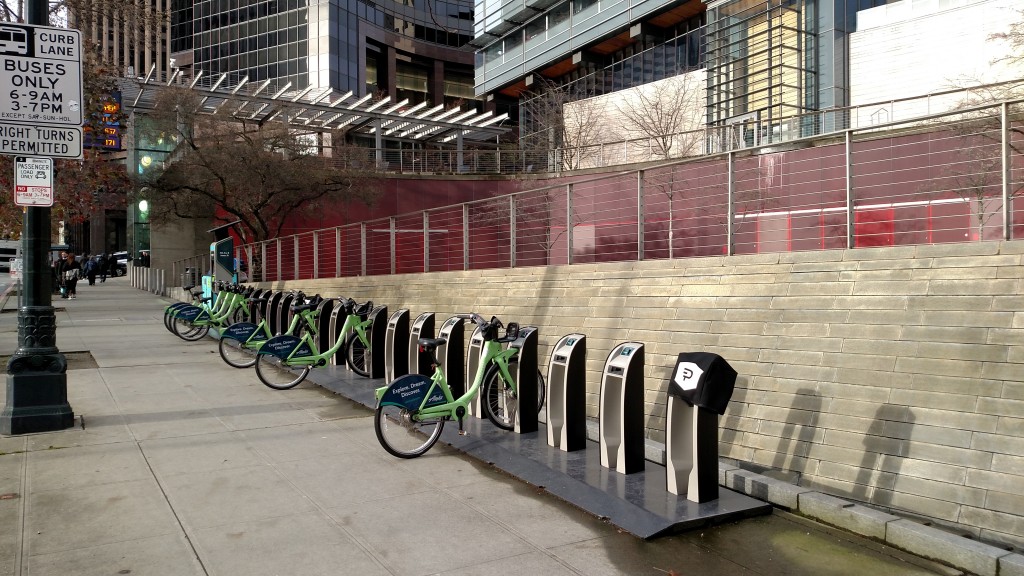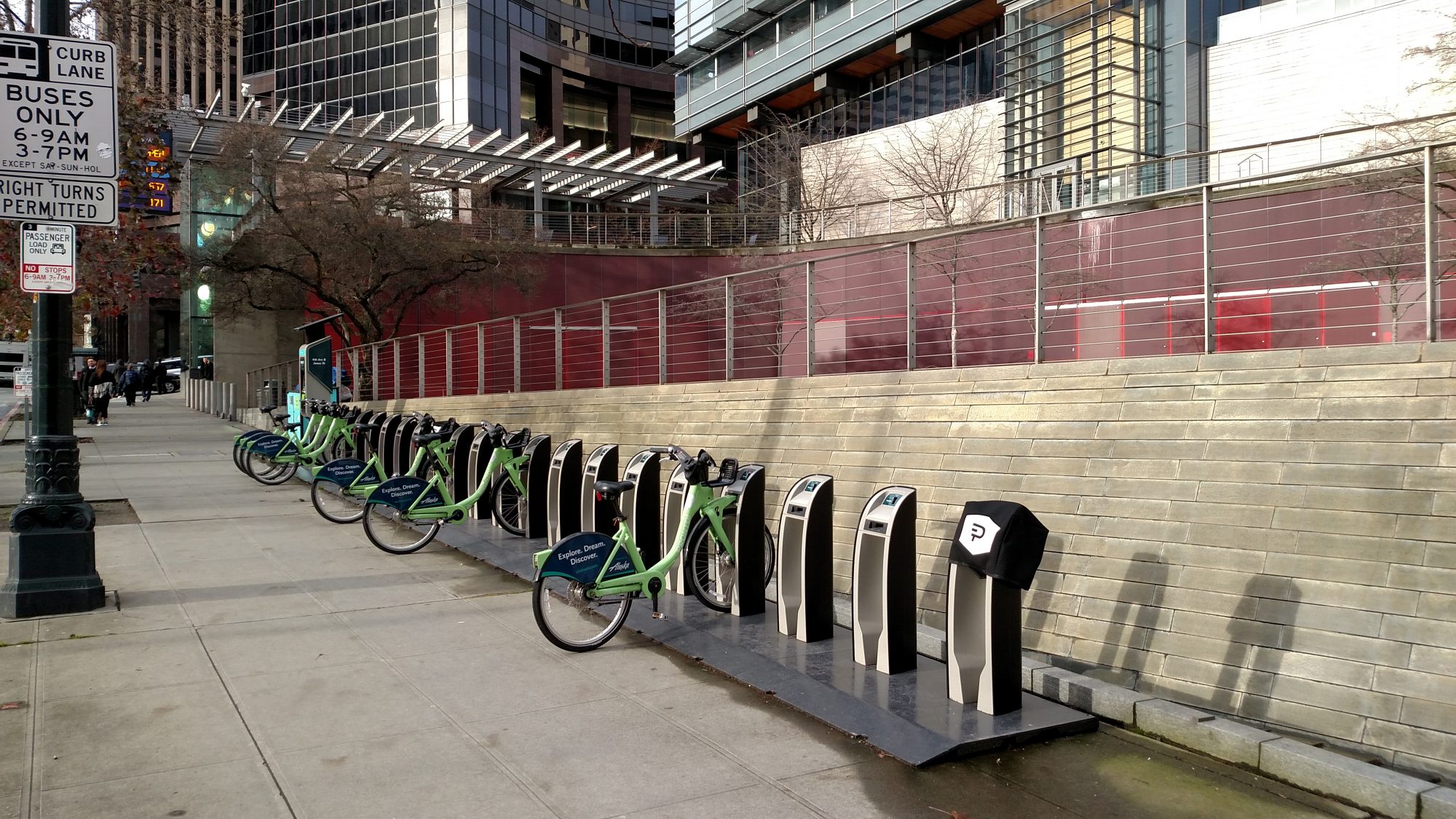Update: Pronto is saved! The bill allocating $1.4 million to buy out Pronto passed 7 – 2 , with Councilmembers Tim Burgess and Lisa Herbold being the only votes against. Notably, the bill was amended to prevent the expansion of the bike share network until certain protected bike lanes are built. Namely:
- Dexter Ave N Protected Bike Lane (Mercer St to Roy St)
- Westlake Ave N Protected Bike Lane (W Raye St to Valley St)
- 2nd Ave Protected Bike Lane (Yesler Way to S Washington St)
- 9th Ave N Protected Bike Lane (Westlake Ave N to Denny Way)
- 2nd Ave Protected Bike Lane (Pike St to Denny Way)
The amendment’s author Mike O’Brien said it was crafted in response to criticism that a bike share network would work better with better bicycle infrastructure in place. Some had also argue running a bike share would distract SDOT from other infrastructure projects. So, add another win — more urgency in the roll out of protected bike lanes — to the win of saving Pronto and taking it under city guidance.
The Seattle City Council is set to take a big vote on the future of Pronto today at its full council meeting at 2 p.m. Councilmember Mike O’Brien will present his amendment which goes ahead with the $1.4 million dollar buyout while adding some additional oversight into the process. O’Brien’s amendment comes with recommendation after a 4-2 vote in transportation committee. Councilmembers Lisa Herbold and Tim Burgess each have they own amendments which seek to block the purchase in the name of fiscal conservatism. The nine members of the full council will make the final decision.

In expectation of the vote, here’s a round-up of Pronto coverage we’ve done at The Urbanist as well as a few choice articles from the wider web.
The most timely is The Urbanist Editorial Board endorsement of buying Pronto and having the city guide the bike share as it grows. They said, “Throwing in the towel now would be a huge mistake.”
Stephen Fesler did an analysis of the first year of data in which Pronto saw more than 144,000 trips. On a per bike basis, the ridership closely mimicked the first year performance of peer cities like San Francisco and Denver.
Back in November, Ryan Packer talked Pronto station placement and argued stations need to be as close as possible to high traffic areas such as light rail stations.
Owen Pickford did a firsthand account of his first Pronto trip and explained how bike share integrates into people’s transportation mix, even those owning their own bikes like him.
In February, Ryan came back with some specific suggestions for station placement that are integral to the system functioning at its highest gear.
Yours truly argued bike share deserves public investment and criticized Councilmember Herbold’s efforts to save a few bucks at the expense of a thriving bike share network with a public interest model. I also included an update from the transportation meeting earlier this month.
At the Seattle Bike Blog, Tom Fucoloro detailed the work the Pronto staff does and made a convincing case that in them the city is getting a gaining an asset beyond the $2.1 million valuation. The talented staff and the institutional memory are an intangible asset but a very valuable one.
Fucoloro also did a great piece detailing the history of Pronto’s financial troubles and arguing the only solution that makes sense is the city buying Pronto since if it goes belly-up the city would be on the hook for up to $1.75 million in grants that carried the condition the bikeshare stay in operation.
Doug Trumm is publisher of The Urbanist. An Urbanist writer since 2015, he dreams of pedestrian streets, bus lanes, and a mass-timber building spree to end our housing crisis. He graduated from the Evans School of Public Policy and Governance at the University of Washington in 2019. He lives in Seattle's Fremont neighborhood and loves to explore the city by foot and by bike.



